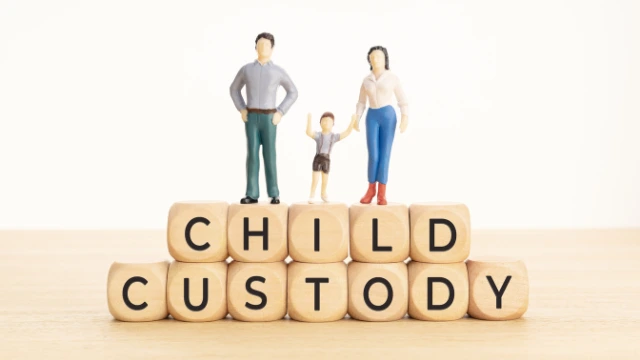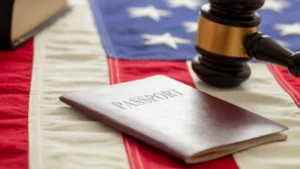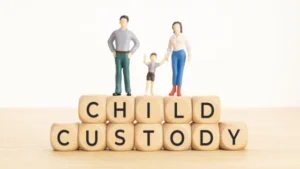

The Devastating Effects of Legal Disputes on Families
Imagine waking up one morning to find out that your ability to see your child is in jeopardy. For many parents, custody battles can be emotionally exhausting, financially draining, and legally complex. When domestic violence allegations, criminal charges, or unstable living conditions enter the picture, the impact on child custody can be profound.
Family courts prioritize the best interests of the child when making custody decisions. This means that any legal issues affecting one or both parents can directly impact who gets custody, visitation rights, and parental responsibilities. Understanding the family law implications of criminal charges, restraining orders, and other legal issues is crucial for parents navigating custody disputes.
Custody Battles: When Legal Issues Affect Parental Rights
In custody battles, courts evaluate multiple factors to determine which parent can provide a stable, nurturing environment for the child. While joint custody is often preferred, any history of legal trouble—especially domestic violence, substance abuse, or criminal activity—can significantly affect the outcome.
Factors That Influence Child Custody Decisions
- Parental Fitness: Courts assess whether each parent can provide a safe, stable home for the child. Evidence of criminal behavior, violence, or neglect can result in a parent losing custody rights.
- History of Domestic Violence: A history of domestic violence—whether proven through police reports, protective orders, or witness testimonies—can severely impact custody decisions. Courts prioritize the child’s safety, and a parent with a violent past may face supervised visitation or complete loss of custody.
- Substance Abuse Issues: If a parent has a record of drug or alcohol abuse, courts may determine that they pose a risk to the child’s well-being, leading to restricted custody or mandatory rehabilitation programs.
- Criminal Convictions: Felony convictions, especially those related to violent crimes, can result in a parent losing custody or having only limited supervised visitation.
- Stability and Consistency: Courts favor the parent who can offer a stable routine, good schooling, and a safe living environment. Any legal instability can work against a parent in custody proceedings.
Parents involved in custody battles must present evidence demonstrating their ability to provide a secure home for their children. Even if one parent has legal troubles, they may still have a chance at partial custody by showing rehabilitation and compliance with court orders.
Family Law Implications: How Legal Troubles Influence Custody Rulings
Family law implications of criminal charges, restraining orders, and domestic violence allegations are serious. Courts must protect children from potentially harmful situations, and any legal trouble a parent faces can become a major factor in custody determinations.
Restraining Orders and Their Effect on Custody
If one parent has a restraining order against the other due to allegations of abuse, the accused parent may face significant custody restrictions. Courts may:
- Prohibit the parent from having any contact with the child until further hearings.
- Allow only supervised visitation, meaning a court-appointed official or relative must be present during visits.
- Grant full custody to the other parent if the risk of harm is deemed too high.
Criminal Charges and Custody Determinations
Even if a parent has not been convicted, being charged with a crime—especially one involving violence, drugs, or endangerment—can influence a judge’s decision. For instance, if a parent is awaiting an assault trial, the court may rule that the child should remain with the other parent until the case is resolved.
However, not all criminal charges automatically lead to loss of custody. Courts will consider:
- The nature of the charge (violent vs. non-violent).
- Whether the offense directly impacts the child’s safety.
- If the accused parent has taken steps toward rehabilitation.
Parental Alienation and False Allegations
Unfortunately, some custody battles involve false accusations. One parent may falsely claim abuse or misconduct to gain an advantage in court. Judges are trained to recognize parental alienation, where one parent attempts to damage the child’s relationship with the other parent through manipulation or deceit. If proven, false allegations can backfire and result in legal penalties for the accuser.
Sentencing Factors in Custody-Related Legal Cases
When a parent faces legal trouble that affects child custody, sentencing factors play a significant role in court decisions. Judges consider:
- Severity of the offense: Misdemeanors may have less impact than felonies.
- Time elapsed since the offense: A conviction from ten years ago may hold less weight than a recent charge.
- Rehabilitation efforts: Completing anger management, parenting classes, or substance abuse programs can demonstrate a commitment to change.
- Impact on the child: Courts assess whether the child’s well-being has been directly affected by the parent’s legal issues.
Judges often impose conditions for custody rather than outright termination. For example, a parent with a history of domestic violence may regain visitation rights by proving they have completed counseling and therapy programs.
Case Study: How Legal Issues Can Impact Custody Decisions
Case: James and Emily shared joint custody of their six-year-old daughter, Lily. However, Emily filed for sole custody after James was arrested for a bar fight. She claimed James was violent and unfit to parent. James denied the accusations, arguing that the incident was unrelated to his role as a father.
Step 1: Initial Custody Hearing
Emily provided police reports detailing James’s arrest. The judge temporarily granted Emily sole custody until the legal matter was resolved.
Step 2: James’s Defense Strategy
James’s attorney presented evidence that:
- The fight was an isolated incident with no history of violence.
- James had never harmed or endangered Lily.
- He was attending anger management classes voluntarily.
Step 3: Court Evaluation
The court ordered a psychological evaluation and home assessment for both parents. The findings showed that James was a loving, responsible father despite the incident.
Step 4: Final Custody Decision
After reviewing the case, the judge reinstated joint custody with supervised visitation for James until he completed his counseling program. This case demonstrates how legal issues don’t always result in permanent loss of custody if rehabilitation efforts are made.
Frequently Asked Questions (FAQs)
- Can a criminal record prevent me from getting custody? It depends on the offense. Violent crimes and child endangerment charges have the most impact on custody decisions.
- Can I regain custody after losing it due to legal issues? Yes. Completing court-ordered programs and providing rehabilitation can help restore parental rights.
- Does a restraining order automatically result in losing custody? Not necessarily. Courts will evaluate the details of the case and determine the safest arrangement for the child.
- What if my ex falsely accuses me of abuse to win custody? Gather evidence, such as text messages, witness testimonies, and character references, to challenge false claims in court.
- Can a judge order supervised visitation indefinitely? Supervised visitation is usually temporary, provided the parent demonstrates good behavior and follows court orders.



